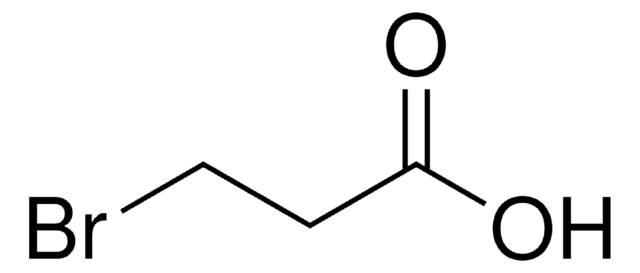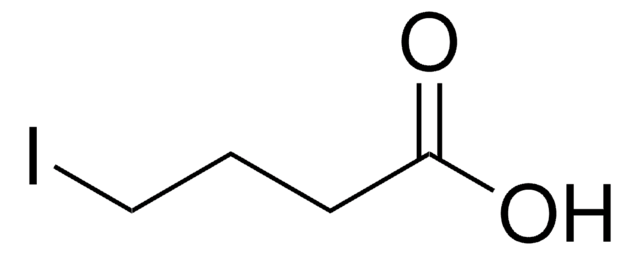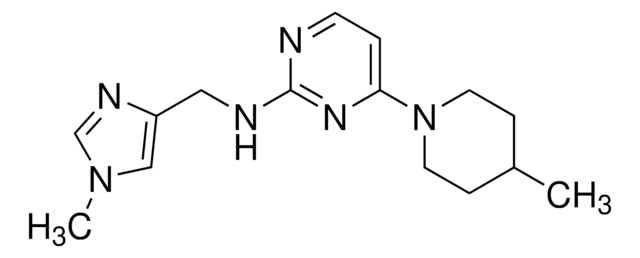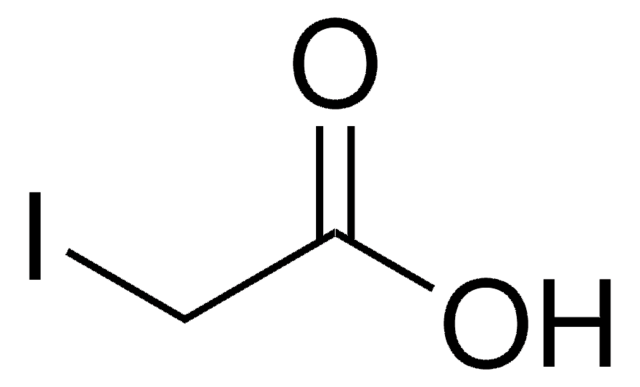All Photos(1)
About This Item
Linear Formula:
ICH2CH2CO2H
CAS Number:
Molecular Weight:
199.98
EC Number:
MDL number:
UNSPSC Code:
12352100
PubChem Substance ID:
NACRES:
NA.22
Recommended Products
Assay
95%
mp
80-83 °C (lit.)
SMILES string
OC(=O)CCI
InChI
1S/C3H5IO2/c4-2-1-3(5)6/h1-2H2,(H,5,6)
InChI key
KMRNTNDWADEIIX-UHFFFAOYSA-N
Related Categories
Other Notes
Remainder 3-chloropropionic acid
Signal Word
Danger
Hazard Statements
Precautionary Statements
Hazard Classifications
Eye Dam. 1 - Skin Corr. 1B
Storage Class Code
8A - Combustible corrosive hazardous materials
WGK
WGK 3
Flash Point(F)
Not applicable
Flash Point(C)
Not applicable
Personal Protective Equipment
dust mask type N95 (US), Eyeshields, Gloves
Certificates of Analysis (COA)
Search for Certificates of Analysis (COA) by entering the products Lot/Batch Number. Lot and Batch Numbers can be found on a product’s label following the words ‘Lot’ or ‘Batch’.
Already Own This Product?
Find documentation for the products that you have recently purchased in the Document Library.
Customers Also Viewed
Raphael C L Machado et al.
Molecules (Basel, Switzerland), 24(23) (2019-11-27)
Compared to conventional spectroscopy or chromatography analysis, chemical sensing based on colorimetric changes offers an alternative to monitor potential metal hazards in aqueous environment through rapid and low-cost colorimetric changes which can be easily interpreted. In this work poly(ethylene glycol)
Eugénie Grigorian et al.
Frontiers in microbiology, 12, 725997-725997 (2021-10-09)
L-2-halocid dehalogenases (L-2-HADs) have been mainly characterized from terrestrial polluted environments. By contrast, knowledge is still scarce about their role in detoxification of predominant halocarbons in marine environments. Here, phylogenetic analyses showed a wide diversity of homologous L-2-HADs, especially among
Janina Kabatc et al.
Journal of pharmaceutical and biomedical analysis, 114, 433-440 (2015-06-30)
Non-covalent interaction of hemicyanine dyes, derivatives of 2,3,3-trimethyl-3H-indolium with bovine serum albumin has been studied by spectral method. For this purpose, three hemicyanine dyes containing N-(2-carboxyethyl)-2,3,3-trimethyl-3H-indolium moiety were synthesized and their UV/Vis and fluorescence spectra, aggregation, photostability and association with
Our team of scientists has experience in all areas of research including Life Science, Material Science, Chemical Synthesis, Chromatography, Analytical and many others.
Contact Technical Service
















